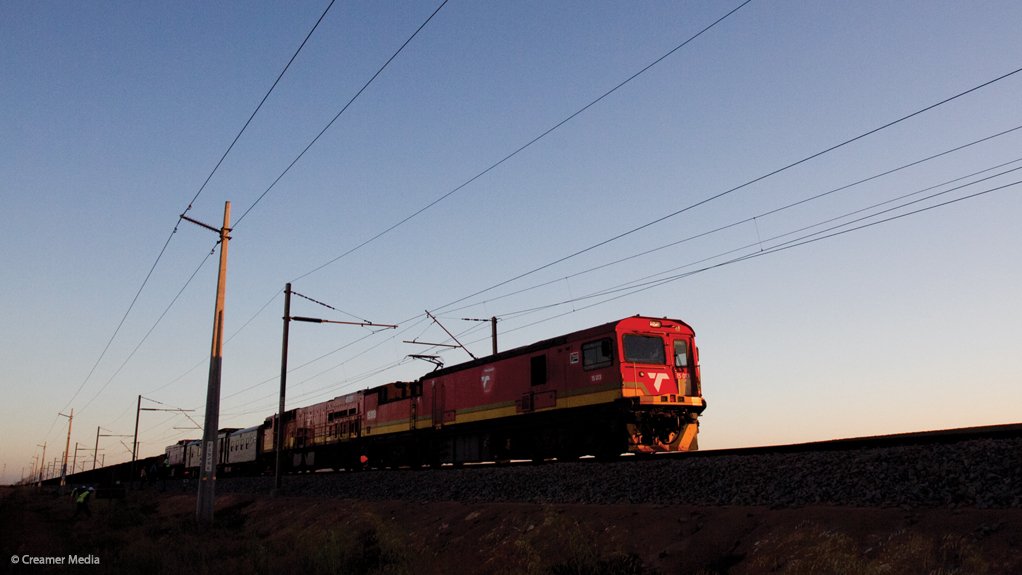South Africa’s National Planning Commission (NPC) is recommending the creation of a comprehensive State-owned enterprise (SOE) holding company, with a commercial company structure, to help protect SOEs from political interference.
The recommendation is contained in a draft position paper that assesses the contribution of Eskom, Transnet and the Passenger Rail Agency of South Africa to the National Development Plan’s Vision 2030 and uses the assessment to provide general lessons for application to other SOEs.
The document was published for public comment on June 8 and the NPC has requested that written feedback be provided by June 30.
The holding company model is one of three options outlined in the paper to address ongoing governance challenges at South Africa’s SOEs.
The other two options include the establishment of a pilot holding company in which the Department of Public Enterprises (DPE) plays a leading role, or one whereby the DPE retains ownership oversight under the coordination of the Presidential SOE Council.
The NPC indicates its preference for the holding company model, or Option 1.
The paper stresses, however, that any reforms should be carefully considered, as there is a risk that South Africa’s poor recent oversight record could be extended to the setting up of the holding company, which could, in turn, reduce accountability and distract from more essential immediate interventions.
Most of the effort, the NPC suggests, should be focused on improving accountability, governance, and financial and operational performance.
The NPC also argues forcefully for a single State ownership policy, noting that such policies are standard benchmarks in Organisation for Economic Co-operation and Development countries.
“This allows standard policy to be applied consistently to all SOEs regardless of ad hoc crises, or shareholder pressures,” the paper avers, adding that a consistent application of policy and procedure would improve transparency, accountability and coordination.
A supporting institutional governance review, which was published alongside the position paper, argues that South Africa’s prevailing institutional framework is failing to provide an integrated oversight structure to effectively fulfil the State’s role as shareholder.
The framework is also not providing a shield for the SOEs from political process and there are signs of inadequate coordination in setting objectives between the DPE and line Ministries.
A single policy, the NPC asserts, would provide general principles and a unified approach to the elements of SOE governance, the structure of oversight entities, the roles of the ownership entity in respect of individual SOEs, as well as the framework for board appointments and their accountability.
It would also set out the director nominee process, including required skills, diversity, and balance of State representatives, while offering guidance on the appointment process for CEOs.
A publicly open directors’ pool could also be established from which new external SOE directors can be drawn.
The NPC paper also argues that the policy should provide a process for the periodic review, by the holding company, of the rationale for the State’s ownership of SOEs and examine options for asset divestment.
Besides governance and policy reforms, the NPC paper also makes recommendations for financial reforms, including:
- Providing SOEs with clear instructions on the balance between commercial and developmental objectives and clarifying the process for costing and funding each;
- Separating the accounts and reporting of commercial and sub-commercial activities to improve transparency of cost allocation; and
- approving additional Budget support with conditionality.
The paper also makes the case for the introduction of structural reforms in those instances where organisational reforms are inadequate to remedy chronic operational, governance and financial underperformance.
“This means opening the provision of the service or infrastructure to other economic actors besides the State and/or changing the structure of State ownership,” the paper explains, while stressing that the debate about structural reforms in South Africa needs to move away from the unhelpful binary privatise/nationalise discourse.
A range of structural reforms could be considered, including: allowing private entry into a value chain; outsourcing service contracts; short-term management, franchising and leasing contracts; selling parts of an SOE to an equity partner; concessions over parts of SOE infrastructure; closing parts of an SOE; enabling direct competition; public-private partnerships; wholesale privatisation; or SOE liquidation.
“It is the underlying nature of the market conditions that must guide the decision to create or retain an SOE,” the paper states.
EMAIL THIS ARTICLE SAVE THIS ARTICLE ARTICLE ENQUIRY
To subscribe email subscriptions@creamermedia.co.za or click here
To advertise email advertising@creamermedia.co.za or click here











